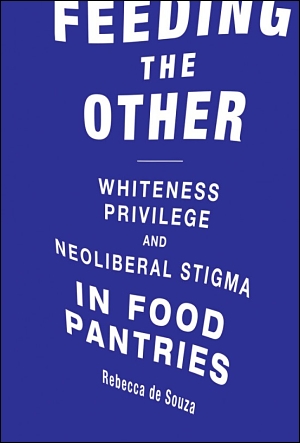“Us” and “Them” at the Food Pantry
DOI:
https://doi.org/10.5304/jafscd.2020.092.021
Keywords:
Food Pantries, Emergency Food, Neoliberalism, Stigma, Charity, WhitenessAbstract
First paragraphs:
Food pantries have become a regular part of American life, not only for those who receive food but also for those who provide it through canned food drives, donations at the supermarket, and volunteer events. Millions of adults and children participate in this form of charity, grateful that they have enough to eat and glad that they have a way to “give back.”
In her new book, Feeding the Other: Whiteness, Privilege, and Neoliberal Stigma in Food Pantries, Rebecca de Souza troubles the narrative by which middle- and upper-class, often white, Americans see themselves as doing good through the charitable provision of food. She argues that conventional food assistance reflects and perpetuates the neoliberal, racist, and patriarchal ideologies that underlie our conventional food system and keep certain people poor and hungry. De Souza uses her ethnographic research in two food pantries in Duluth, Minnesota, to show how staff, volunteers, and even clients draw on the neoliberal values of hard work, responsibility, and material wealth to define who deserves food, respect, and citizenship and who deserves suspicion, surveillance, and discipline. . . .
Metrics

Downloads
Published
How to Cite
License
Copyright (c) 2020 The Author

This work is licensed under a Creative Commons Attribution 4.0 International License.
The copyright to all content published in JAFSCD belongs to the author(s). It is licensed as CC BY 4.0. This license determines how you may reprint, copy, distribute, or otherwise share JAFSCD content.












